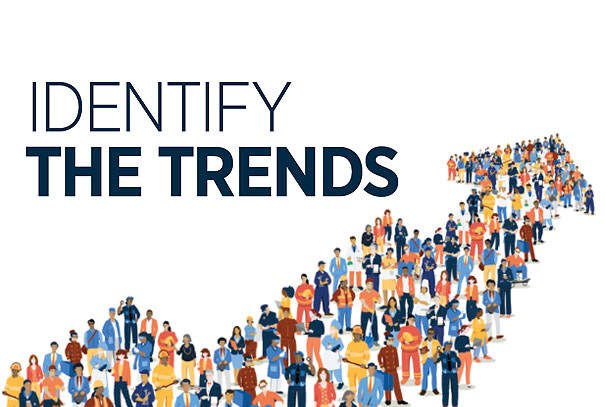
London, United Kingdom, November 20, 2018 ‒ Given the current atmosphere of political and economic uncertainty, it is no wonder that organisations in the UK are finding it harder and harder to attract and keep top talent. Workforce risks such as growing labour shortages in the UK, as well as predicted falls in immigration from the EU following Brexit, mean that employers must focus on creating a better workplace with less. This may include retraining older workers; attracting younger talent through apprenticeships; helping women return to work; or automating jobs.
At the same time, organisations must raise their offering to meet the demands of millennials, as they reach a pivotal time in their careers ‒ and demand their employers stand for a purpose. In order to have any impact with this audience, organisations must demonstrate a strong employer value proposition essentially, ‘how you want to be seen’; a set of values lived by workers, driven from the top down. The best organisations match these goals by becoming ‘destination employers’ that are able to win over talent with a more supportive approach. These employers promise and deliver on commitments such as work-life balance and career opportunities, offering their people a chance to grow.
“The sooner organisations set out on the right path to attract and retain the best talent ‒ despite a complex marketplace here in the UK ‒ the quicker they’ll reap the rewards of sustaining a dynamic workforce,” said Tim Johnson, Chief Executive of Gallagher Benefit Services, UK. “Destination employers are reimagining their total rewards framework and adopting a more humanistic and holistic approach to employee wellbeing ‒ one that inspires and supports better work.”
The 2018 Organisational Wellbeing & Talent Insights Report offers insights from 12 of Gallagher’s thought leaders, on methods to strengthen workplace wellbeing, across physical and emotional, career, financial, and organisational areas. Below are summaries of some of the report’s most critical findings:
Employees want to see career pathways, not flat structures
In an effort to eliminate an emphasis on hierarchy in the workplace, many employers have replaced traditional multi-grade pay structures with ‘broadbanding’: a system wherein there are fewer salary grades, but with broader pay ranges. Insights from Gallagher show, however, that ‒ despite this being, seemingly, the fashionable choice ‒ such ‘flat structures’ actually turn off younger talent. In fact, as noted by Robert Walters, 91% of millennials consider the potential for career progression a top priority when choosing a new job. Furthermore, according to the same source, whilst 60% would like formal feedback on their professional development every one to three months, only 38% receive it once a year ‒ at most.1 For millennial workers, assurance of their potential and value at work takes precedence; employees want to feel they have clear career trajectories, in organisations that want to help them succeed; backed by financial compensation that matches their efforts.
Financial wellbeing can benefit employers as well as employees
The provision of a workplace pension is only the start of financial wellbeing. Gallagher’s findings show that if organisations help their employees become more financially resilient ‒ by offering financial education, or tailored support ‒ they can reap marked benefits in workplace productivity. According to figures from the Office for National Statistics, around 15.8 million days were lost to stress-related illness in 2016; of these, 32% were related to money worries.2 This equates to nearly five million days lost due to financial stress.
One-size-fits-all pension schemes, which are the norm in the UK, are not suiting the needs of all employees. Financial stresses are numerous. Younger talent, for instance, may worry about their student loans, graduating with an average debt of £50,800. Older employees may delay leaving work, as they are unable to afford to retire. In contrast to this and as highlighted by last year’s inaugural gender pay-gap reporting, women often progress less and therefore receive less pay than their male colleagues. Now, this conversation is expanding to involve not only gender pay gaps, but diversity pay gaps, too: recent reports show black women in top jobs are paid half of what their white, female counterparts receive.3
In light of this, Gallagher proposes that offering regulated and scheme-specific financial decision support, to all employees, could markedly improve organisational wellbeing. This is reinforced by the Financial Conduct Authority finding that 57% of employees want financial advice and one-third would pay for an employer-sourced, in-house financial adviser. Such activity could even be part government-funded, through the Pension Advice Allowance scheme.
About the organisational wellbeing & talent insights report
The Organisational Wellbeing & Talent Insights Report is a collection of articles featuring ideas and solutions for the benefits and HR issues that matter most to UK employers right now. It helps employers cultivate a better workplace that balances the physical, emotional, career, financial and organisational elements of total wellbeing. And create a workplace that drives better business outcomes. Twelve thought leaders from Gallagher’s employee benefits consulting and brokerage operation provided analysis for the UK edition of this report.
About Gallagher
Gallagher (NYSE: AJG) is a global insurance brokerage, risk management and consulting services firm headquartered in Rolling Meadows, Illinois. The company has operations in 34 countries and offers client-service capabilities in more than 150 countries around the world through a network of correspondent brokers and consultants.
Contact:
Anna Rozenich, Gallagher
630-285-5954
anna_rozenich@ajg.com
Sources:
- Robert Walters, ‘91% of Millennial professionals think career progression is a top priority’
- Office for National Statistics, ‘Total of 137 million working days lost to sickness and injury in 2016’, March 2017
- Bloomberg, Rebecca Grenfield and Ellen Huet, ‘Black Women’s Top Jobs Pay Half What White Women’s Do’, September 18 2018.

